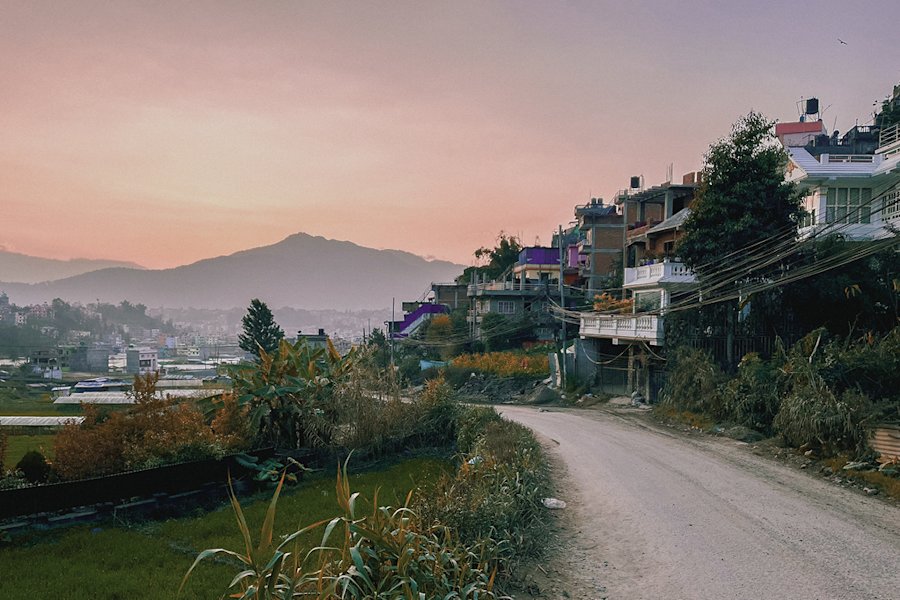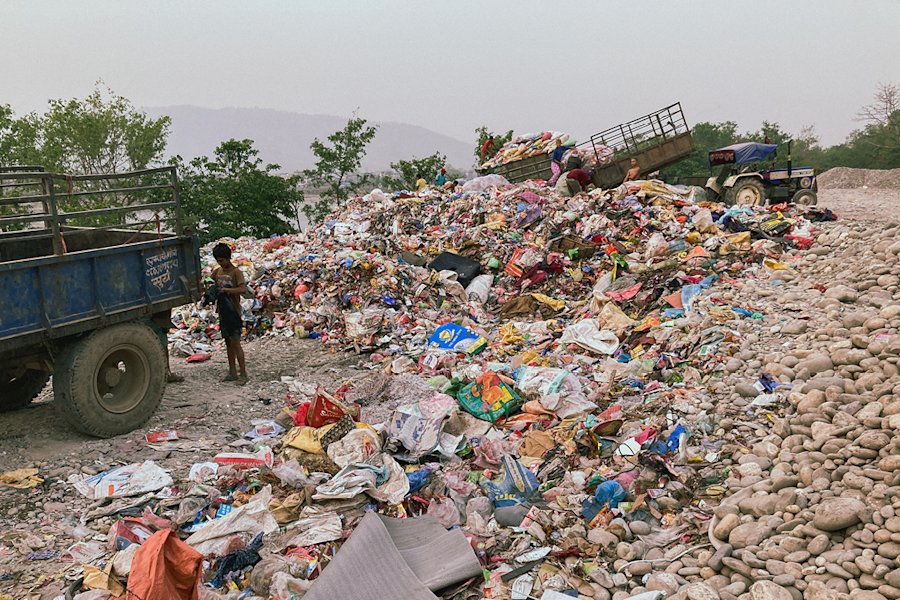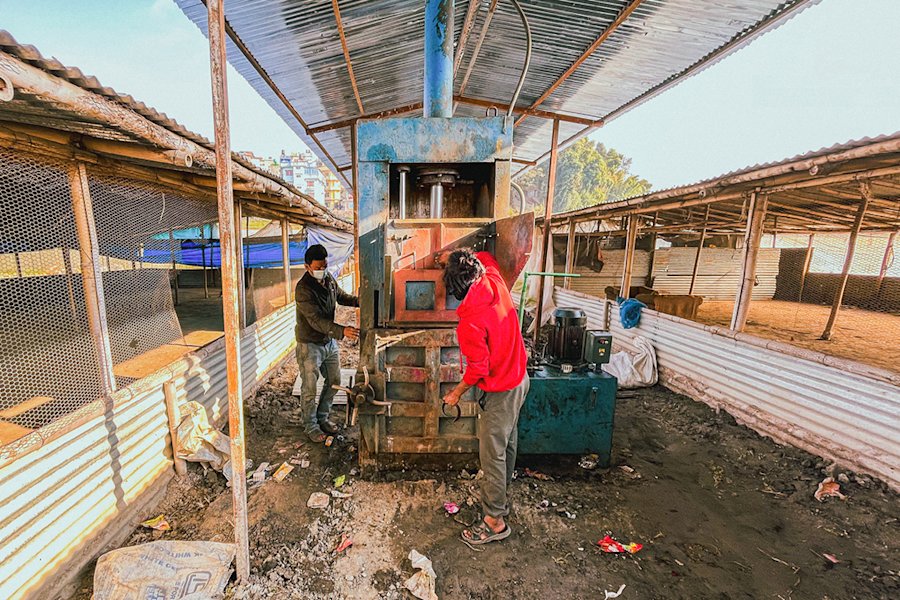We have two bits of exciting news for you. Firstly, we are making use of our Rounding Up feature to support a new project in Nepal. And secondly, we have taken a whole new step as a company by founding a gGmbH – a not-for-profit company with limited liability under German law. Read on to find out what this new project is all about.
Since the end of 2021, our Rounding Up feature has enabled you to round up to the nearest euro any payment you make with your Tomorrow card – meaning that your remaining cents are donated to climate justice projects. While this is not a lot of money for any of us individually, it adds up to a substantial total.
Together with you, we have already been able to finance the first two projects in this way. You can find out more on this feature here on our website and more information on the projects is available in the Tomorrow app. Find out more about our new project:
A new Rounding Up project in Nepal
We have now begun actively supporting a third climate justice project together with you: joining forces with NIDISI gGmbH, we are collecting €97,500 for the recycling infrastructure in Nepal.
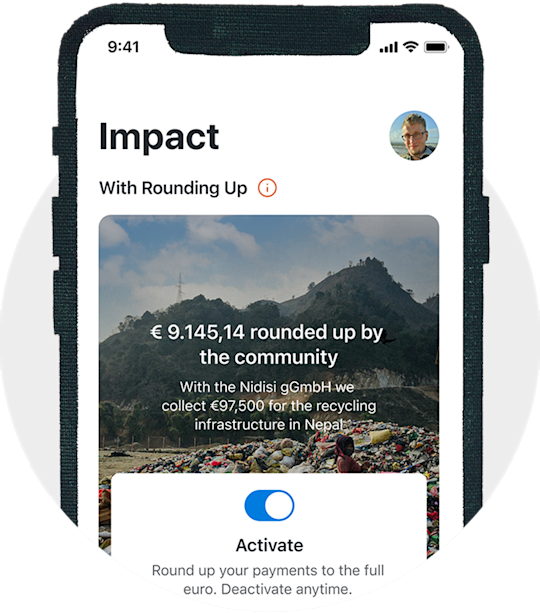
Why is recycling so important? Nepal is greatly affected by the climate crisis and subject to extreme weather conditions. The insufficient facilities for recycling and disposing of plastic waste presents another major ecological challenge for Nepal and exacerbates the effects of the climate crisis. This is because the waste ends up in overfilled landfills or is disposed of in nature or incinerated in a way that is extremely damaging to the environment, which is why Nidisi wants to set up a recycling infrastructure for Nepal.
Plastic credits: how the recycling system works
This is done through modular recycling centers and by integrating plastic waste in road construction. By using plastic credits, they can make recycling commercially viable in Nepal while covering the administrative costs at the same time. Plastic credits serve as a kind of currency. NIDISI generates credits with every ton of plastic recycled in Nepal. These plastic credits are sold to companies in the Global North that are reducing their plastic consumption and want to offset the remaining amount.
Further projects are planned in the long term, such as the integration of non-recyclable plastic as a replacement for concrete when building roads. The company has developed a process for this together with the Fraunhofer Institute and a number of universities. Several pilot roads are already under construction.
- Image 1
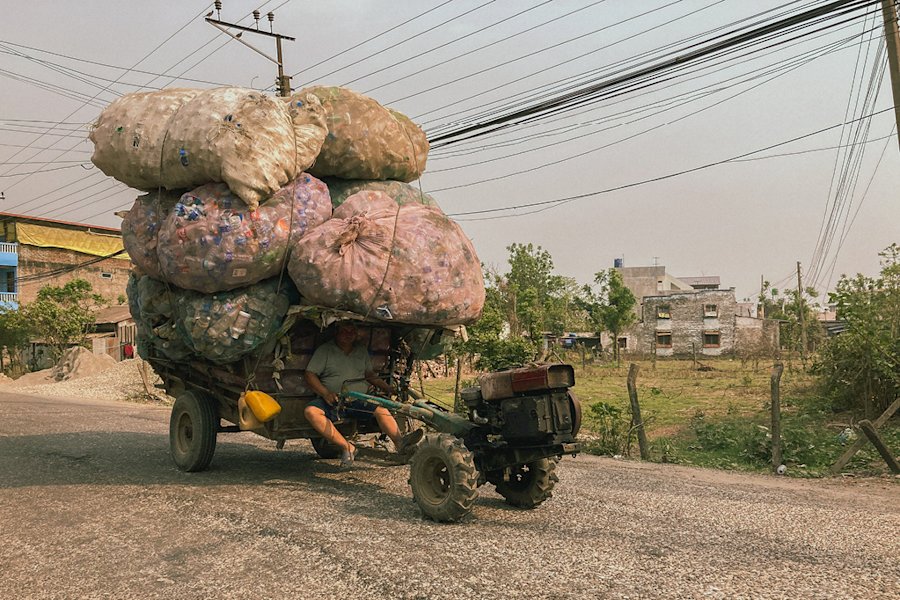
How will the recycling project help to improve climate justice?
International inequality: People in the Global North use the most plastic but are affected less by the consequences. Companies in the Global North pay for recycling in the Global South by buying plastic credits.
Income equality: As poor regions are more greatly affected by plastic pollution, the people living there are more likely to have health problems as a result. Recycling helps to fight pollution.
Gender inequality: Women working on the project are paid the same wages as men.
Urban-rural inequality: Villages are often unable to develop a waste management system themselves. Unemployment is higher in rural areas. The project creates mobile recycling centers that can be deployed anywhere and can take away the waste. And the project creates jobs in rural areas.
We are taking a new step: by establishing a gGmbH
Another exciting piece of news is that we at Tomorrow have set up a new not-for-profit company with limited liability under German law (gGmbH).
Founding a gGmbH is the next major step in our mission to use money as a lever for ensuring a good future for us all. As a not-for-profit company, we can accept donations through ‘rounding up’ and pass them on to the relevant organizations. This money is clearly earmarked for a specific purpose. The main aim of the not-for-profit company is to work towards climate justice. In this way, we can also guarantee that these funds will be used exclusively to combat the climate catastrophe. Want to know more about it? Read on.
The money from the gGmbH may be used for the following specific purposes:
§52 4 Youth welfare and care for the elderly
§52 10 Aid for refugees
§52 12 Civil protection and disaster control
§52 13 Tolerance in all areas of culture and international understanding
§52 14 Animal welfare
§52 15 Development cooperation
§52 8 Environmental protection
§52 18 Equal rights for men and women
§52 24 Democratic governance
Transparency Note: We - meaning: the Tomorrow Foundation gGmbH and the respective NGO - charge the costs that arise at Tomorrow through the Rounding Up support, for example for the transaction fees. Thus, we as Tomorrow GmbH also generate income in order to be able to sustainably establish Rounding Up as an independent impact driver in the long term. We base the fee on the evaluation of the Charity Watch organization. We plan to stay below 25% of the total amount on an annual average and are thus rated with top grade (A) by the NGO.
More about climate justice
We are rounding up together for more climate justice! Read on
Why the climate crisis hits girls and women hardest – and what we can do about it. Read on
Better sustainable than sorry: Open your sustainable Tomorrow bank account and change the finance world

